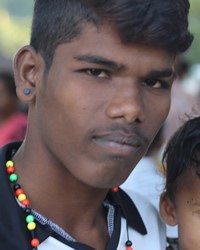Malayali, Malayalam in Malaysia

Photo Source:
Anonymous
|
Send Joshua Project a map of this people group.
|
| People Name: | Malayali, Malayalam |
| Country: | Malaysia |
| 10/40 Window: | Yes |
| Population: | 387,000 |
| World Population: | 2,118,800 |
| Primary Language: | Malayalam |
| Primary Religion: | Islam |
| Christian Adherents: | 23.00 % |
| Evangelicals: | 12.00 % |
| Scripture: | Complete Bible |
| Ministry Resources: | Yes |
| Jesus Film: | Yes |
| Audio Recordings: | Yes |
| People Cluster: | South Asia Tribal - other |
| Affinity Bloc: | South Asian Peoples |
| Progress Level: |
|
Introduction / History
The Malayali have ancestral origins in Kerala and neighboring states in South India. They are in 12 countries including Malaysia.
Religious faith varies among the Malayalam speakers in India. Hinduism, Islam, Christianity, and Judaism are all present. The Christians are well represented, especially by the Church of St. Thomas, a disciple of Jesus Christ who is said to have visited Kerala in 52 AD. The Portuguese introduced Roman Catholicism to Kerala in the 15th century. Islam was introduced to Kerala through Arab traders who came into the ports for spices. One unique distinction among the Malayali community is that regardless of their religious heritage, their own origin as Malayali takes precedence.
The Malayali traveled to Malaysia in the early 20th century seeking a better life. They were initially employed on plantations as conductors, clerks, and hospital assistants. Due to their excellent command of English, the second generation of Malayali became plantation managers or assistant plantation managers, and others professionals.
What Are Their Lives Like?
Today in Malaysia, the Malayali are well represented in institutions of higher learning and professional occupations, such as law, medicine, scientific research, engineering, and politics. Unlike the Tamil majority, their language is not recognized as one of Malaysia's people group languages taught in the public school system. Due to the Malayali's zeal for higher education and economic success, the younger generations are losing their mother tongue and customs. The younger generation is more comfortable speaking English than Malayali. Though proud of their heritage, family beliefs, and traditions, many Malayali are losing a part of their identities. They have managed to keep their language, faith, festivals, and folklore alive. The Malayali language is Malayalam, which is derived from Sanskrit.
What Are Their Beliefs?
Malayalis have seen their people embrace Hinduism, Islam, and Christianity in Malaysia's multi-religious society, yet they still maintain their Malayali identity. The Malayali, in addition to celebrating festivals of Indian Hindus in Malaysia (Thaipusam, Deepavali, etc.), also celebrate ancient festivals from Malayali legends which still practice distinctly by Malayali Hindus. For example, they consider Onam (celebrated in April) as an important harvest festival, while the Tamils regard Ponggal (celebrated in January) as their harvest festival. Another ancient Malayali festival is Vishu (their astronomical New Year). No Malayali festival is complete without traditional Kaikottucali (a rhythmic dance performed by young girls dressed in white and adorned with flowers) and traditional vegetarian meals, which differ from other Indian cuisine with the Malayali's use of coconut milk.
What Are Their Needs?
Malayalis need to be Christ's ambassadors to Hindus and Muslims in Malaysia who don't know the Lord.
Prayer Points
Pray for believers among the Malayali to not turn their backs on the larger Malayali community but relate to them in a way that both helps to maintain their cultural heritage and point to the Lord of lords that transcends cultures.
Pray for local believers outside the Malayali community to also relate and respond to the needs of the Malayali.